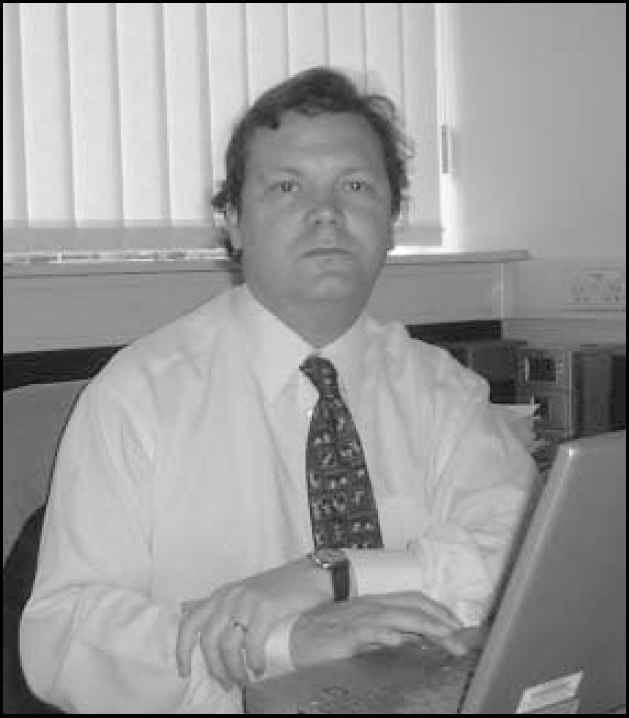
Robert Kerwin is Professor of Clinical Neuropharmacology at the Institute of Psychiatry. He trained at Cambridge University, Westminster Hospital and Bristol University. His special interests include pharmacological genetics, neuroimaging, pharmacovigilance, clinical therapeutics and organic psychiatry.
If you were not a psychiatrist, what would you do?
Play slide-guitar in a backing group to a country music diva or fly aircraft for commercial gain.
Do you feel stigmatised by your profession?
Not really, but I do feel that poor standards nationally drag the profession down in the eyes of others.
What are your interests outside of work?
I am very heavily involved in rowing and now rowing administration. I am a country music fanatic - I was the only person in my time at Cambridge who was proud to own up to owning a Dolly Parton album. I am a keen aviator and fly multiple types of aircraft. I have three daughters. I never ever take work home. I am a keen Sunday afternoon kipper.
Who was your most influential trainer, and why?
Leslie Iversen when at Cambridge. I always remember him saying that the key to success in science was not endless theorising but having an experiment to do every day. Joe Rabbit, my biology teacher and a ruthless disciplinarian. I guess I knew I was good at biology because I was the only person who never got a beating from him.
What job gave you the most useful training experience?
None really. My third year at Cambridge doing a BA in pharmacology transformed me from a failing medical student to someone with a mission in life to make a contribution to this field of study. Also learning on the job as a prematurely appointed consultant.
What research publication has had the greatest influence on your work?
Stuff coming out of Cambridge, Paris and Washington about neurotransmitters and their role in CNS diseases in the late 1970s. Publications about endogenous ligands for opiates in 1977. I have always disliked ‘ theological’publications. Dictionary definition of theological is hypothetical work that has no practical applicability. A lot of functional imaging is like this, and 99% of all research posters and communications I believe fall into this category.
What is the most promising opportunity facing the profession?
Rapidly increasing attractiveness of psychiatry to junior doctors and medical students.
What is the greatest threat?
The Royal College of Psychiatrists and all the spawning self-serving bureaucracies in medicine that give medical men respectability when their enthusiasm for research or patient contact dries up.
What single change would substantially improve quality of care?
Rapidity of psychiatric intervention and investigation. Waiting weeks for a scan or a visit simply would not happen in other medical specialties.
What conflict of interest do you encounter most often?
Overinterpretation of my conflicts of interest.
Do you think psychiatry is brainless or mindless?
Both.
How would you entice more medical students into the profession?
Emphasise the biological. Have more charismatic role models interact with medical students. Try to prevent our medical and surgical colleagues who have closer contact with undergraduates from being prejudiced about psychiatry and psychiatrists.
What is the most important advice you could offer to a new trainee?
Try not to be Calmanised and rigid about training. I think this rips the heart out of some research-minded trainees. Take time out to pursue genuine and specialist interests to maintain enthusiasm and don't worry if this delays the CCST for a bit.
What are the main ethical problems that psychiatrists will face in the future?
Medical ethicists and the medico-legalisation of psychiatric practice, e.g. homicide inquiries.
How would you improve clinical psychiatric training?
Turn the clock back and de-emphasise NTNs and CCSTs. Let trainees go with the flow of their interests and do research sabbaticals, etc. within a junior training format.
What single change to mental health legislation would you like to see?
To de-emphasise the role of people who have relatively limited training in mental health, but yet have the power of vetoing consultants’ MHA decisions. I am talking principally about social workers and hospital manager tribunals.
How should the role of the Royal College of Psychiatrists change?
I was at a Medical Society dinner recently where some powerful people were hoping to see the reduction on the stranglehold that these ‘clubs’ have on medical policy and research. I wholeheartedly agree, especially with respect to our College. I also believe our College is academically the weakest of all Royal Colleges.
What is the future for psychotherapy in psychiatry training and practice?
I do believe this is vital. But the psychotherapists have too strong a voice in the MRCPsych curriculum.
What single area of psychiatric research should be given priority?
Pragmatic research in therapeutics. Not genetics or health service research, but something that may benefit patients within a short timeframe.
What single area of psychiatric practice is most in need of development?
Get rid of all old dogs who won't be taught new tricks and who resolutely refuse to embrace new developments on behalf of their patients. I get several phone calls a day from carers complaining about this in their local region.



eLetters
No eLetters have been published for this article.